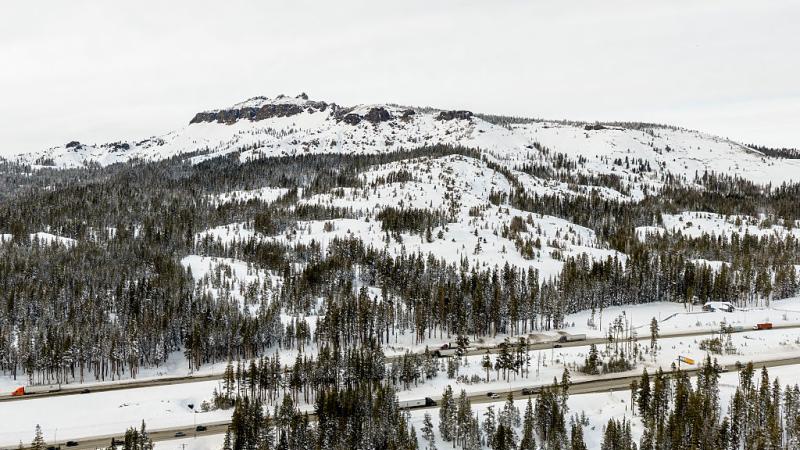Biden administration announces pause on approvals of natural gas exports
Natural gas industry groups warn the pause will disrupt needed supplies to America’s allies and will undermine climate goals, as natural gas is often used as an alternative to coal, which produces more carbon dioxide emissions.
The White House on Friday announced a temporary pause on pending decisions of exports of liquefied natural gas to non-free trade countries, until the the Energy Department can factor climate change into its reviews of the projects.
"As our exports increase, we must review export applications using the most comprehensive up-to-date analysis of the economic, environmental and national security considerations," Energy Secretary Jennifer Granholm told reporters on a press call.
Natural gas industry groups warn the pause will disrupt needed supplies to U.S. allies and will undermine climate goals, because natural gas is often used as an alternative to coal, which produces more carbon dioxide emissions.
“As we near the second anniversary of Russia’s invasion of Ukraine, our allies around the world are relying on the benefits of clean, reliable, and affordable American LNG and are keenly aware of the risks of relying on our adversaries for energy,” Anne Bradbury, CEO of the American Exploration & Production Council, a natural gas trade association group, told Just The News.
It’s unclear which projects the action will impact, Fox News reports.
One official said the pause would impact only projects that have gone through the Federal Energy Regulatory Commission (FERC) approval process, which according to E&E News authorizes the construction of LNG import and export facilities. The Energy Department approves export licenses to non-free trade countries, which includes those in Europe.
The most recent federal data, according to Fox News shows that FERC has approved 11 projects that are not yet under construction.
Four other projects are pending before the commission, and two of those are in the pre-filing stage. Those six projects are not before the DOE and wouldn’t be impacted unless approved by FERC.
















